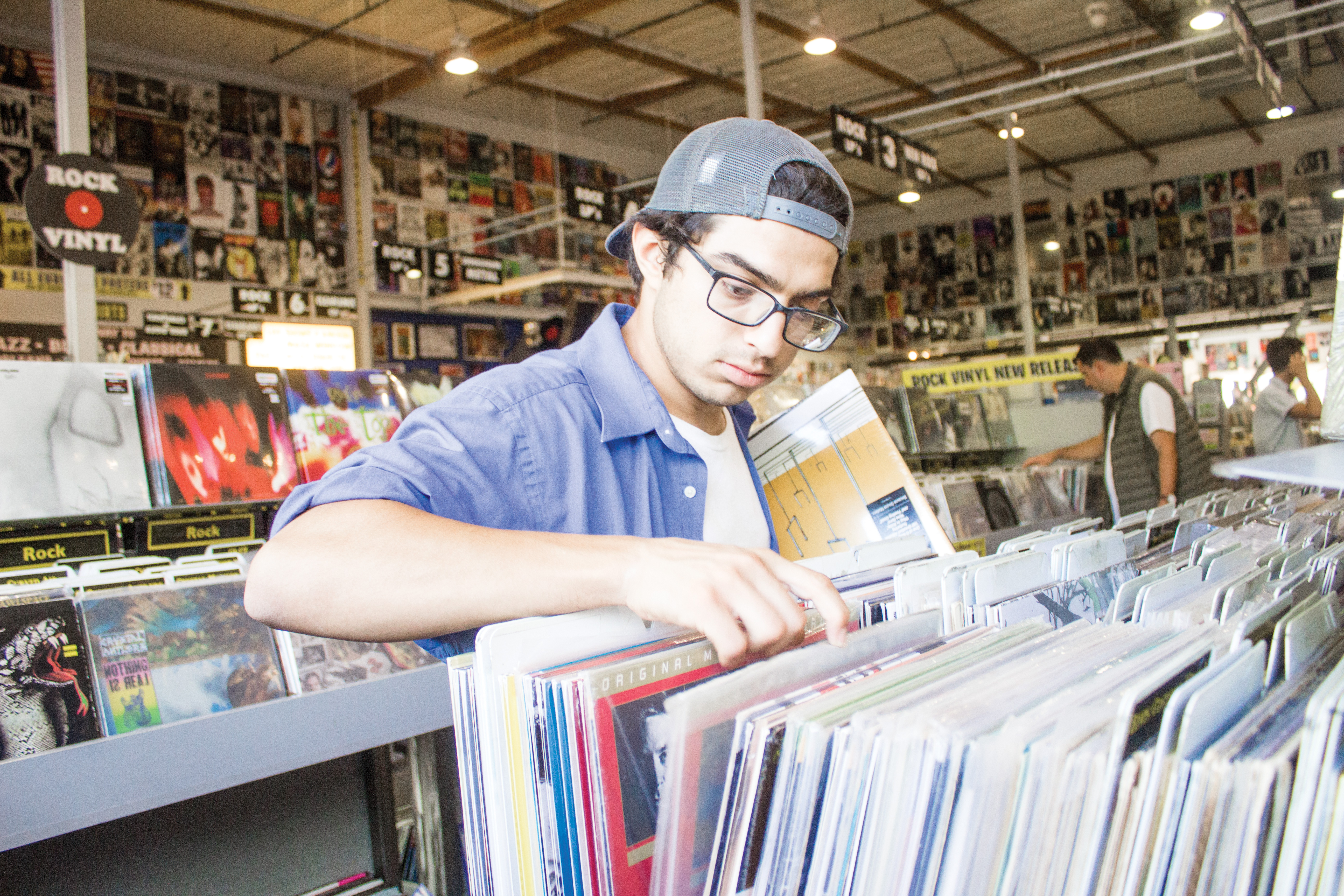
[Lauren Shelburne | Banner] Eduardo Camacho Villalobos, 24-year-old musician, celebrates his birthday by sifting through records at Amoeba.
The iconic Amoeba Music store in Hollywood, which has provided customers with CDs, vinyl records and other music memorabilia since 2001, had its future at its Sunset Boulevard location questioned, hinting at the future of a primarily digital age of music.
Los Angeles blog “LAist” revealed architectural plans to build a high-end residential building on the city block between Ivar Avenue and Cahuenga Boulevard. The plans were discovered in the online portfolio of Shimahara Illustration, an architectural illustration firm.
The Amoeba Music property had sold for $34 million last October, but plans were not filed with the city to redevelop the land until recently.
Fans of the store turned to social media to express concerns about the news. The official Twitter account of the store commented on the allegations through a picture of a handwritten note.
“We’re going to remain in our building for the duration of our lease — which is several years — and Amoeba and the building owner are open to us potentially staying longer,” according to Amoeba’s Twitter Account. “We are committed to staying in Hollywood and we appreciate all your concern and support.”
Morgan Young, Amoeba Music employee of almost six years, said he believes the plan is to relocate to another space in Downtown Los Angeles that is smaller, but this change will not occur for at least four more years.
The New York Times reported that within the last decade, music sales have dropped a staggering 84 percent. Ten years ago iTunes and other digital download mediums premiered, but with the more recent popularization of streaming, sales are suffering and stores are following suit.
“We can’t expect to go on forever,” Young said. “The paradigm will eventually shift and people will be back to the digital medium again. It’s just the way it is.”
While streaming services like Spotify may recommend new music, a music store allows customers to spend hours wandering up and down aisles discovering new bands and sampling tracks.
Trisha Smith, sophomore graphic design major, got her first record player as a gift and said she enjoyed finding new music in stores.
“Record stores are something timeless and should be appreciated, so yes, it is sad to see them go,” Smith said.
Stephen Sleeper, junior music composition major, releases his music on digital media platforms in order to have his music heard by others and draw in new fans for his shows. He said streaming services are both a blessing and a curse for musicians and with singles becoming so popular, fans are no longer buying full albums.
“The album is the truest form of art in that it takes pure talent to construct one,” Sleeper said. “An album should then be listened all the way through.”


